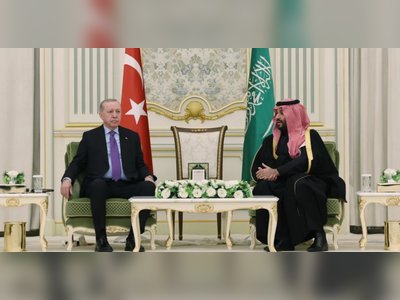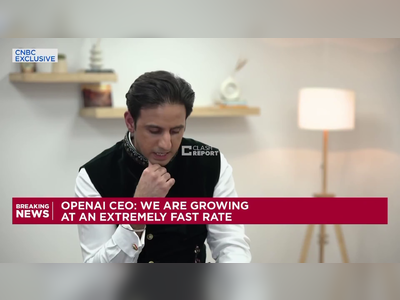
The Uber files lit up the darkness of big tech, and showed why we need whistleblowers | Frances Haugen
People must feel able to speak out – and our laws must protect them, says former Facebook employee Frances Haugen
This week, more than 124,000 documents disclosed by the whistleblower Mark MacGann, Uber’s former chief lobbyist for Europe, detailed how Uber flouted laws, duped police, exploited violence against drivers and secretly lobbied governments in order to aggressively build its global empire.
Last year, I disclosed thousands of documents to the US government revealing Facebook’s negligence about the harm its products were doing. As with the documents supplied by MacGann, the public would have never known this information even existed had a whistleblower not tipped them off.
The Uber files clearly illustrate the critical importance of whistleblowers. They also present choices for governments and the citizens they represent. Technology has always outpaced its regulators. It takes time for a culture of accountability to grow around any nascent technology or industry, and for governments to understand how they work and what costs are being passed on to the public.
The most critical technologies that will drive and define our economy in years to come are radically less transparent than those that drove our economy a hundred years ago. As the motor industry became more complicated and prominent in society, the public were able to walk alongside it. People could buy a car and crash it, buy a car, and take it apart, buy a car and put sensors on to verify that the claims of its manufacturers were true. Accountability grew alongside the industry.
For most digital technologies, this cannot occur. Critical design choices are hidden behind our screens, where the public cannot access them. The functioning of a system such as Facebook is impossible to inspect from the outside. Academics and journalists spend millions of dollars building third-party tools to harvest glimmers of data from Facebook’s systems.
That investment is critical for exposing Facebook’s failures. For instance, the company’s Widely Viewed Content report in the “Transparency Center” manipulates data to hide the fact that inflammatory content keeps getting bumped back up your newsfeed when people debate in the comments section. As a former insider, I happen to know that, but Facebook refuses to share this information with any external researcher. This kind of access to data is essential for investigating Facebook’s distorted representations and for gaining democratic oversight of these platforms.
If we can only ever extract threads of knowledge from outside the curtain that shields bad behaviour – and only then at an extreme cost – we will never have effective accountability. That’s why big-tech whistleblowers play an ever more important role as our line of defence. They pierce the corporate veil in the name of public safety. We must act to ensure future whistleblowers are afforded the same, if not more robust, protections.
People often ask me how my whistleblowing journey has unfolded: whether I’m OK with all the public attention and scrutiny I’ve received. The truth is, I am OK. I chose to follow my conscience, and now I can sleep at night. I am fortunate that the worst corners of the internet have not come for me, as they do for many women and minorities who speak their minds in public.
I know I am fortunate. Not all whistleblowers have fared as well. Daniel Motaung was a Facebook moderator working in Kenya. He was paid just $2.20 an hour and forced to watch graphic footage of suicide and murder in a content moderation factory day after day – a fate, he says, that drove him and many of his co-workers to suffer from PTSD and worse. He was later fired by Facebook’s outsourcing partner Sama in 2019 after he bravely led more than 100 of his colleagues in a unionisation effort for better pay and working conditions. He is now suing Sama and Meta, alleging that he and his former colleagues are victims of forced labour, human trafficking and union-busting. Facebook is attempting to silence him; the company has asked a judge to “crack the whip” on Motaung to prevent him from speaking to the media. The double standards applied to him for following his conscience are unjust. His persecution must stop.
Technology has always outpaced regulations that help pull it back towards the common good. Good governance takes time, but that gap grows larger with an acceleration in technological development. Big tech’s ability to operate in the darkness, and its complete asymmetry of information, put the public and entire democracies at grave risk.
Governments can never keep the public safe in isolation. We need academics and vetted researchers who can independently ask questions and create frameworks for us to think about problems. We need litigators who hold companies accountable when they cut corners to make profits. We need investors who understand what good governance looks like to ensure companies don’t focus on short-term profits at the expense of long-term success. We need technologists who care deeply about designing technology for individual and democratic wellbeing.
We also need whistleblowers.
Our only safe path forward is to work for strong laws that protect whistleblowers worldwide. When the US passed major whistleblower protections in 2002 in the wake of corporate scandals, it was cutting-edge in affording the employees of publicly traded companies whistleblower rights. It’s now time to expand protections to all employees of privately held companies as well. We can’t afford to let the future operate in the dark any longer. Democracy depends on it.
Last year, I disclosed thousands of documents to the US government revealing Facebook’s negligence about the harm its products were doing. As with the documents supplied by MacGann, the public would have never known this information even existed had a whistleblower not tipped them off.
The Uber files clearly illustrate the critical importance of whistleblowers. They also present choices for governments and the citizens they represent. Technology has always outpaced its regulators. It takes time for a culture of accountability to grow around any nascent technology or industry, and for governments to understand how they work and what costs are being passed on to the public.
The most critical technologies that will drive and define our economy in years to come are radically less transparent than those that drove our economy a hundred years ago. As the motor industry became more complicated and prominent in society, the public were able to walk alongside it. People could buy a car and crash it, buy a car, and take it apart, buy a car and put sensors on to verify that the claims of its manufacturers were true. Accountability grew alongside the industry.
For most digital technologies, this cannot occur. Critical design choices are hidden behind our screens, where the public cannot access them. The functioning of a system such as Facebook is impossible to inspect from the outside. Academics and journalists spend millions of dollars building third-party tools to harvest glimmers of data from Facebook’s systems.
That investment is critical for exposing Facebook’s failures. For instance, the company’s Widely Viewed Content report in the “Transparency Center” manipulates data to hide the fact that inflammatory content keeps getting bumped back up your newsfeed when people debate in the comments section. As a former insider, I happen to know that, but Facebook refuses to share this information with any external researcher. This kind of access to data is essential for investigating Facebook’s distorted representations and for gaining democratic oversight of these platforms.
If we can only ever extract threads of knowledge from outside the curtain that shields bad behaviour – and only then at an extreme cost – we will never have effective accountability. That’s why big-tech whistleblowers play an ever more important role as our line of defence. They pierce the corporate veil in the name of public safety. We must act to ensure future whistleblowers are afforded the same, if not more robust, protections.
People often ask me how my whistleblowing journey has unfolded: whether I’m OK with all the public attention and scrutiny I’ve received. The truth is, I am OK. I chose to follow my conscience, and now I can sleep at night. I am fortunate that the worst corners of the internet have not come for me, as they do for many women and minorities who speak their minds in public.
I know I am fortunate. Not all whistleblowers have fared as well. Daniel Motaung was a Facebook moderator working in Kenya. He was paid just $2.20 an hour and forced to watch graphic footage of suicide and murder in a content moderation factory day after day – a fate, he says, that drove him and many of his co-workers to suffer from PTSD and worse. He was later fired by Facebook’s outsourcing partner Sama in 2019 after he bravely led more than 100 of his colleagues in a unionisation effort for better pay and working conditions. He is now suing Sama and Meta, alleging that he and his former colleagues are victims of forced labour, human trafficking and union-busting. Facebook is attempting to silence him; the company has asked a judge to “crack the whip” on Motaung to prevent him from speaking to the media. The double standards applied to him for following his conscience are unjust. His persecution must stop.
Technology has always outpaced regulations that help pull it back towards the common good. Good governance takes time, but that gap grows larger with an acceleration in technological development. Big tech’s ability to operate in the darkness, and its complete asymmetry of information, put the public and entire democracies at grave risk.
Governments can never keep the public safe in isolation. We need academics and vetted researchers who can independently ask questions and create frameworks for us to think about problems. We need litigators who hold companies accountable when they cut corners to make profits. We need investors who understand what good governance looks like to ensure companies don’t focus on short-term profits at the expense of long-term success. We need technologists who care deeply about designing technology for individual and democratic wellbeing.
We also need whistleblowers.
Our only safe path forward is to work for strong laws that protect whistleblowers worldwide. When the US passed major whistleblower protections in 2002 in the wake of corporate scandals, it was cutting-edge in affording the employees of publicly traded companies whistleblower rights. It’s now time to expand protections to all employees of privately held companies as well. We can’t afford to let the future operate in the dark any longer. Democracy depends on it.











